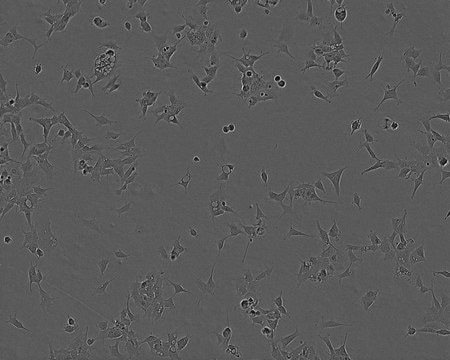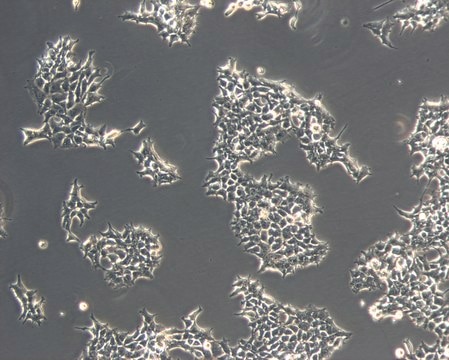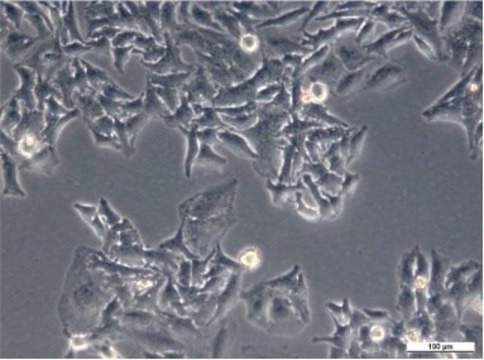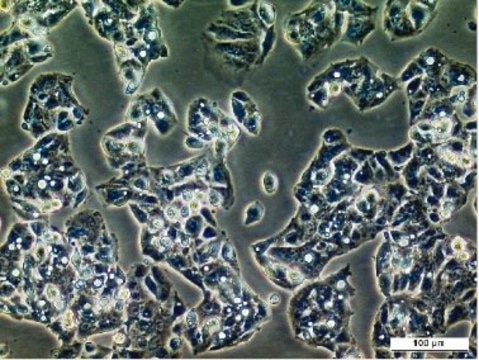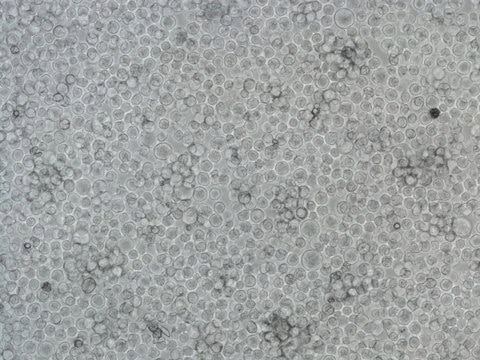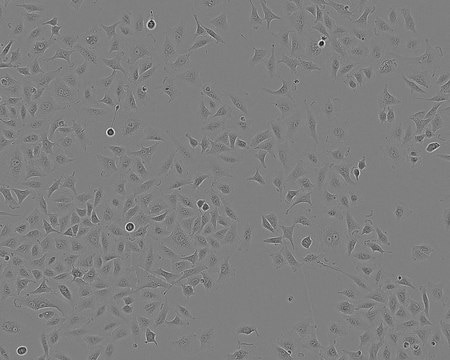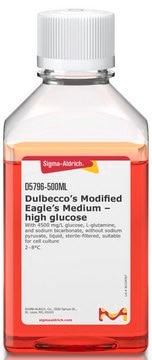Recommended Products
product name
293-Hektor, 05030204
biological source
human kidney
growth mode
Aggregates in suspension
karyotype
Not specified
morphology
Fibroblast
products
Not specified
receptors
Not specified
technique(s)
cell culture | mammalian: suitable
shipped in
dry ice
storage temp.
−196°C
Related Categories
Cell Line Origin
Human Embryo Kidney, serum-free
Cell Line Description
The human embryo kidney cell line 293 (Sigma Catalogue number. 85120602) adapted to grow in the chemically defined protein- and peptide-free Hektor™ G medium. Cells grow in suspension and tend to form aggregates in static culture. The cells grow as finely dispersed single cell suspension under optimal agitated culture conditions.
Culture Medium
Hektor™ G medium + 4mM Glutamine + 5 ug/ml Insulin. The exogeneous insulin supplementation can be reduced or totally eliminated under optimal culture conditions. When freezing cells down use culture medium (50:50 conditioned medium:fresh medium) + 10% DMSO.
Subculture Routine
Viability may be poor on resuscitation and may initially decrease further. Full recovery may take up to 2 weeks. A centrifugation step to remove the cryoprotectant is essential. Rapidly thaw the frozen ampoule in a water bath at 37°C for 1-2 minutes. Transfer the contents to a centrifuge tube and slowly add 5-10ml of pre-warmed growth media. Remove a sample for counting. Centrifuge at 100g for 2-3 minutes to pellet cells and seed at a relatively high density of 5-7 x 105 cells/ml. Leave culture flask upright and observe regularly until viable proliferating cell clumps form. Once established use a split ratio of 1:2 approximately every 4 to 5 days; 5% CO2; 37°C.
Other Notes
Additional freight & handling charges may be applicable for Asia-Pacific shipments. Please check with your local Customer Service representative for more information.
Legal Information
Hektor is a trademark of Cell Culture Technologies
Certificates of Analysis (COA)
Search for Certificates of Analysis (COA) by entering the products Lot/Batch Number. Lot and Batch Numbers can be found on a product’s label following the words ‘Lot’ or ‘Batch’.
Already Own This Product?
Find documentation for the products that you have recently purchased in the Document Library.
Our team of scientists has experience in all areas of research including Life Science, Material Science, Chemical Synthesis, Chromatography, Analytical and many others.
Contact Technical Service